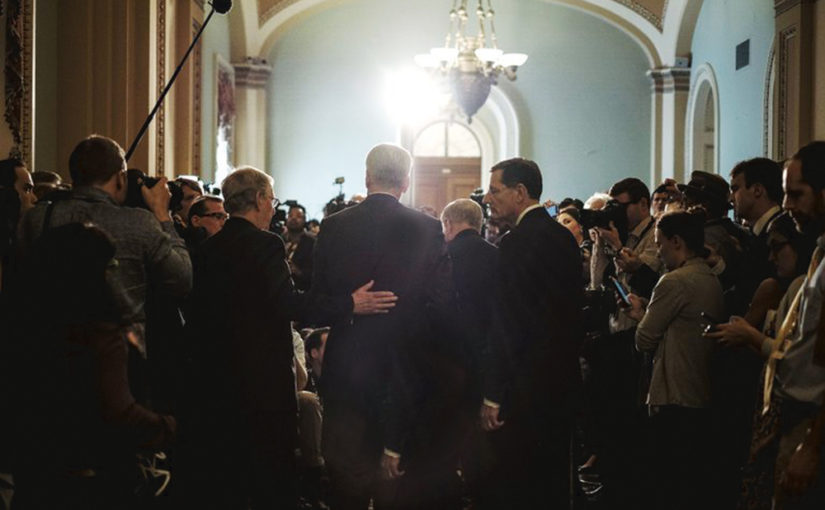The most recent effort by Senate Republicans to repeal the Affordable Care Act (ACA), often referred to as “Obamacare,” has failed after Senate Majority Leader Mitch McConnell (R-KY) decided not to hold a vote on the Graham-Cassidy bill.
The bill, which was introduced by Sen. Lindsey Graham (R-SC) and Sen. Bill Cassidy (R-LA), sought to give states more control over health care by allowing them to waive pre-existing conditions coverage, opt-out of “essential health benefits” requirements and, overall, the bill would have cut Medicaid funding over time.
On Monday, hopes that the bill would pass began to fade. Sen. Rand Paul (R-KY) and Sen. John McCain (R-AZ) had already announced that they would vote ‘no’ on the effort. With the two Republican senators and every Democrat opposed, there was only a one vote difference between pass or fail. However, that was until Sen. Susan Collins (R-ME) announced on Monday that she would vote ‘no’ as well.
The fast action on this bill was due to the Sept. 30 deadline, which, according to Congress’ “budget reconciliation” instructions, set up a special process that lets the Senate advance a bill with a simple majority rather than 60 votes is set to expire.
The Graham-Cassidy bill had mobilized nearly the entire health care community in opposition. Numerous medical associations publicly opposed the bill, including the American Medical Association, American Hospital Association, the American College of Physicians and many more advocacy groups representing patients, doctors, insurers and hospitals.
The Congressional Budget Office (CBO) released its report on the Graham-Cassidy bill on Monday, finding that people would lose health coverage due to $1 trillion in cuts to Medicaid through 2026. The CBO also reported that the Graham-Cassidy bill would reduce the on-budget deficit by $133 billion, however, the number of people with comprehensive health insurance would be reduced by millions.
Nicholas Bauroth, an associate professor in the department of criminal justice and political science that specializes in American government and public policy, notes that “everything is up in the air now with health care.”
“There are corrections that need to be made with the Affordable Care Act, and we have even seen some bipartisan approach,” Bauroth said. “Even in this last attempt, there was a close vote, one to be exact, from passing.” The NDSU professor also noted that Republicans in Congress want to pass reform of the ACA, as it is one of the issues they have been campaigning on since 2010.
“This recent failure at repealing (Obamacare) has come as an embarrassment to the Republicans, which could be damaging in the upcoming midterm elections. However, they have not given up on their attempts,” Bauroth said, suggesting that the Republican majority will work for one more opportunity at repealing ACA and may likely attach an amendment to upcoming tax reform.
Bauroth found the difficulty of repealing the ACA surprising. With a Republican controlled federal government, Bauroth recognized that passing some form of health care reform should have been easy, but after four failed attempts since President Trump took office, “It seems that the Republican-held Congress could not (find an alternative) that would please anyone or make the numbers work.”
